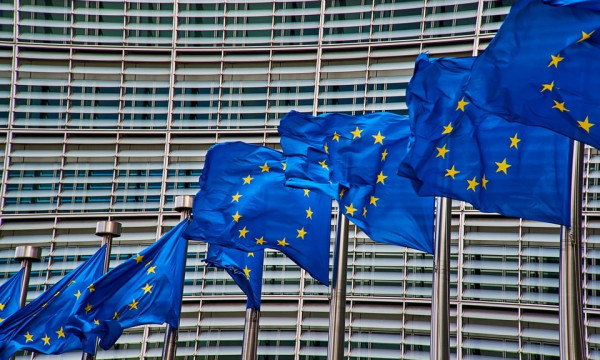EU Backs Global Climate Action, Seeks Ambitious COP29 Goals

During the COP29 UN Climate Change Conference scheduled for November 11th to 22nd in Azerbaijan the European Union plans to collaborate with allies to fulfill the objectives of the Paris Agreement in striving to keep the increase in global average temperature as near as feasible to 1. Climate change persists as a concern without boundaries. Is progressively causing damage to communities and economies, in Europe and worldwide. During COP29 meetings this year for the Paris Agreement discussions the focus needs to be redirecting financial investments to match the goals of the agreement itself by setting a New Collective Quantified Goal (NCQC). The collective goal of ensuring support for climate related initiatives will be a key agenda, in this years talks.
The European Union is presently the source of global climate funding by offering €28 600 million in public climate funds in 2023 and facilitating an extra €7200 million, in private funds to aid developing nations in cutting their greenhouse gas emissions and adapting to climate change impacts. In order to drive progress towards climate goals and ensure financial support aligns with the Paris Agreement objectives it is crucial for not only developed countries but also a diverse range of stakeholders to play a role in mobilizing climate finance. This necessitates participation from the private sector and exploration of new funding avenues along with efforts to create supportive environments on both global and local fronts. The NCQG should play a role, in aligning financial investments with the goals of the Paris Agreement and reshaping how climate finance is discussed at an international level. We should recognize the importance of an initiative to gather significant financing from a diverse range of funding sources. Both public and private sectors, at home and abroad.
One crucial aspect of the upcoming discussions will involve reaffirmation of the global energy targets established in Dubai last year aiming to shift away from fossil fuels while boosting renewable energy investments threefold and enhancing energy efficiency measures twofold by 2030.EU representatives are aiming to establish high expectations for the Nationally Determined Contributions (NDCs) that all Parties are expected to present next year.Preparations for the NDC by the EU have already commenced following the release of the Commissions Communication, on Europes 2040 climate objective earlier this year. The Commission plans to introduce a law proposing a 90 percent cut in emissions by 2040 under the European Climate Law, which will guide the development of the EUs new NDC.
The EU negotiation team will also focus on finalizing talks about carbon markets as outlined in Article 6 of the Paris Agreement to meet the increasing demand for reliable carbon offset systems and financial support, for climate projects while ensuring consistent standards based on integrity and accountability.
Climate Action Commissioner Wopke Hoekstra is set to head the EU delegation more at COP29 and collaborate closely with the Council Presidency and Member States to fulfill the recently adopted negotiating mandate. Energy Commissioner Kadri Simson will be present on November 14th and 15th to concentrate on executing the shift, from fossil fuels commitment and efforts to lower methane emissions while advancing clean technology development initiatives. Commissioner Iliana Ivanova will be visiting Baku on November 12 to participate in an event focused on 'The Future of Net Zero Competitiveness.
Lets set the context.
In 2018 in Paris Agreement all nations worldwide decided to limit the rise in global temperature to below 2°C and ideally close to 1°C by 2100 through their submitted Nationally Determined Contributions (NDCs) outlining their goals, for reducing emissions individually. The European Union strongly supports the Paris Agreement. Is recognized as a key player, in climate initiatives. It has successfully reduced its greenhouse gas emissions by 37 percent since 1990 while also achieving economic growth of nearly 70 percent.
In December 2019 the European Green Deal was introduced by the EU with a goal of achieving climate neutrality by 2050. This commitment was made legally binding in July 2021 through the European Climate Law coming into effect.The Climate Law also includes a term target to reduce net greenhouse gas emissions by a minimum of 55% by 2030 compared to levels in 1990.This target, for 2030 was officially communicated to the UNFCCC in December 2020 as part of the EUs NDC under the Paris Agreement. In 2021 the European Union unveiled a set of laws aimed at aligning its climate and energy policies with the goal of reducing net greenhouse gas emissions by at least 55 percent by the year 2030.
The European Union won't host any events in its dedicated area at this years COP conference but will take part in various activities on site instead The Commission is collaborating with the International Labour Organization (ILO) for the third consecutive year to jointly manage the Just Transition Pavilion—a platform for conversations and interactions regarding the job related and societal dimensions of transitioning to greener practices such as creating sustainable jobs and fostering dialogue, around skills development.
Here is the paraphrased text in a human like form; "Please note that this content may have been modified for clarity and length by the original source before publication here, at Mirage.News."

Dominic Maley is an American journalist recognized for his sharp and insightful reporting on social and political issues. His work is known for its depth, integrity, and the ability to highlight critical societal concerns.